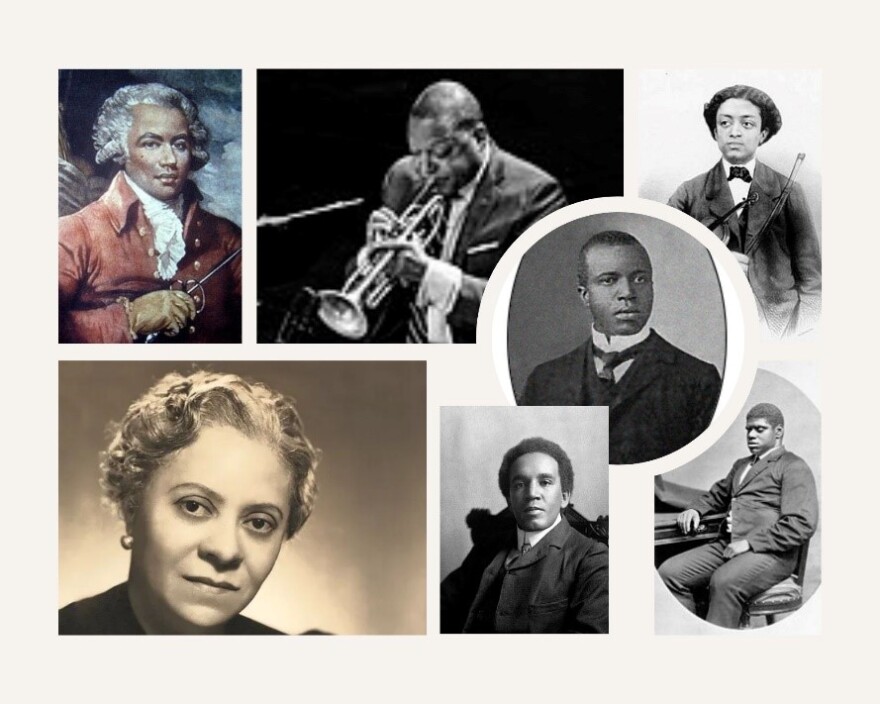
Thomas “Blind Tom” Wiggins was born in 1849 on a Georgia Plantation. Blind from birth, he was sold along with his parents to General James Neil Bethune… "the first [newspaper] editor in the south to openly advocate secession."
Most likely autistic, the young Wiggins exhibited a talent for sound, including reproducing piano music he heard Bethune's daughters play. By the age of five he was composing. Bethune encouraged all this, giving Wiggins a special room, complete with piano. A neighbor remembered, “He made the piano go for twelve hours out of twenty-four."
Bethune started profiting from Wiggins early on. He hired his slave out, starting at age eight, to a promoter who billed him as "Blind Tom," touring across the country, performing up to four shows a day. A Wiggins recital included part of his memorized repertoire of 7,000 pieces as well as astounding imitations of wildlife sounds and public figures. One witness reported the performance of three pieces of music at once: 'Fisher's Hornpipe' with one hand and 'Yankee Doodle' with the other, all while singing 'Dixie.’
Wiggins earned Bethune up to $100,000 a year… over $3 million today… making Wiggins probably the most highly paid… or should we say “profitable”… musician of the 19th century.
After the Civil War Wiggins was never truly freed. He continued to be indentured by contract to Bethune and then Bethune’s son, who’s accidental death caused custody to fall to an unscrupulous wife of a short marriage. Wiggins continued to tour, eventually on Vaudeville’s Orpheum circuit, until a probable stroke caused partial paralysis. Even so, he continued to play piano at all hours until a final, fatal stroke silenced him in 1908.
In the end neither worldwide fame, nor dozens of published compositions, nor numerous lawsuits were able to free the man some have called “The Last Legal Slave in America.”
Thomas Wiggins… classically black.



